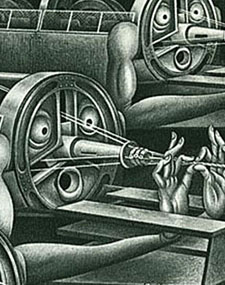The emergence of online scholarship is a momentous development and an occasion for some serious rethinking of the scholarly knowledge system. This serious rethinking has been happening in earnest for some time, but it isn’t just about technology. It extends deep into our conceptions of the historical, social, and institutional dimensions of scholarly practice.
The scholarly knowledge system we have today originated in the seventeenth century. It sanctifies the individuality, originality, objectivity, and intellectual property of scholars working alone (or in small groups) within a knowledge system defined by the fixity, uniformity, and proprietary status of print. Now, networked IT proffers an apparatus in which information and knowledge no longer tend to be fixed and proprietary; where cultural breakthroughs occur as the result of exercises in collective intelligence, large-scale collaboration, assemblage, and continuous revision; and where authorship and authority are increasingly established communally and anonymously rather than individually.
What constitutes knowledge, publication, research, peer review, authorship, and authority is quickly changing. Each of these sites of epistemic disruption raises stubborn questions. How will scholars harness the capabilities of networked media and still maintain rigorous standards of scholarly literacy and authority? How will institutions of higher learning integrate new forms of scholarly productivity into their review and reward structures? What will it take for peer-reviewed online scholarship to achieve a comparable status to print forms?










